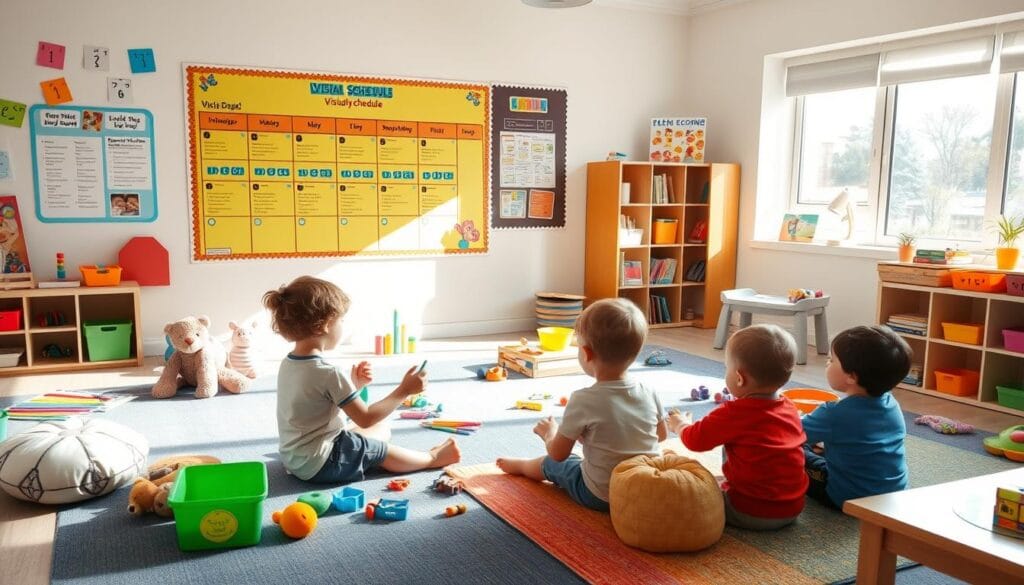Why the “Right to Make Mistakes” is Essential in Parenting – The Power of Embracing Imperfection
فهرس المقالة
Introduction: The Pressure to Be a Perfect Parent
Parenting today can feel like navigating a complex maze, where every decision counts and any misstep might seem daunting. Perhaps you’ve felt the weight of needing to be a “perfect” parent, avoiding every mistake and second-guessing choices to ensure the best for your child. But what if mistakes aren’t setbacks at all, but valuable learning experiences?
The concept of the “right to make mistakes” offers a refreshing perspective. It’s a chance for you, as a parent, to show your children that mistakes aren’t failures—they’re part of growth. As we explore this, you’ll see how embracing mistakes strengthens your family relationships, builds resilience, and, most importantly, teaches your child to face life’s challenges with confidence.
What Does the “Right to Make Mistakes” Mean in Parenting?

In essence, the “right to make mistakes” involves allowing yourself the freedom to navigate parenting without constant self-criticism. It’s about removing the unrealistic expectation of perfection. Parenting is a journey, and each decision, even the ones that don’t turn out as planned, contributes to the path of growth.
- Learning and Adapting: When you allow room for mistakes, you create an environment where learning and adapting happen naturally.
- Setting an Example: By showing your child that mistakes are a part of life, you set an example of resilience and adaptability.
- Building Trust: Embracing errors builds trust within the family. When you’re open to learning, your child will feel encouraged to come to you with their own struggles and questions.
Benefits of Allowing Mistakes in Family Life

Giving yourself the right to make mistakes isn’t just a personal relief—it also impacts your family in powerful ways. Here’s how:
- Strengthening the Parent-Child Bond
Accepting your own mistakes can help to foster a bond of trust and authenticity between you and your child. When children see that their parents aren’t perfect, it helps them understand that making mistakes is okay. - Supporting Emotional Resilience
Mistakes teach us resilience and patience. By allowing mistakes, you provide an emotional buffer for your child, helping them face their own challenges with less fear and more determination. - Fostering Problem-Solving Skills
Life is unpredictable, and not every decision will go as planned. When mistakes are embraced as part of problem-solving, children learn to assess situations, adjust, and move forward—essential skills they’ll carry into adulthood.
Strategies for Embracing the “Right to Make Mistakes” as a Parent
Embracing mistakes doesn’t happen overnight, but there are practical steps you can take to make it easier.
Set Realistic Expectations for Yourself
Parenting isn’t about perfection. Setting realistic, flexible goals can help reduce self-imposed pressures:
- Start Small: Instead of striving to be “perfect,” set goals that focus on improvement. Celebrate small wins, such as the simple achievement of a day with patience and understanding.
- Forgive Yourself: Every parent feels regret at some point. Learn to forgive yourself for those moments, and recognize that they don’t define your parenting abilities.
Practice Self-Compassion
Self-compassion is crucial. When you’re kind to yourself, you create a more relaxed, loving environment for your child. Practicing self-compassion may include:
- Positive Self-Talk: Remind yourself that every parent faces challenges. Practice affirming yourself for the effort you put into raising your child, even when the outcomes aren’t perfect.
- Reflect on Your Growth: Take time to appreciate the journey of parenting. Look back on your own growth, and celebrate the ways you’ve learned from each experience.
Teaching Children the Value of Mistakes
When you teach children to view mistakes as part of learning, you’re giving them lifelong tools for resilience. Here’s how to introduce this mindset:
Encourage Honest Reflection
Help your child understand that mistakes aren’t something to hide or fear. Instead, encourage them to reflect on their actions and consider what they’ve learned:
- Ask Reflective Questions: After a mistake, ask questions like, “What did you learn from this?” or “How would you do it differently next time?”
- Support Open Discussion: Let your child feel safe talking about their mistakes. Show empathy, and share your own experiences to model openness.
Use Play as a Tool for Learning
Children learn best through play. By allowing for playful exploration, you can teach resilience and adaptability without pressure:
- Allow Exploration: Give your child the freedom to make decisions during playtime. When they make mistakes, gently guide them towards understanding rather than stepping in to correct them immediately.
- Games and Challenges: Engaging in fun challenges helps children develop problem-solving skills naturally.
Be an Example
Children are observant, and they learn as much from your actions as they do from your words. Let them see that you handle your own mistakes with calmness and optimism:
- Share Your Lessons: Talk openly about mistakes you’ve made in age-appropriate ways. Let them know that you, too, are learning and growing.
Addressing Misconceptions About the “Right to Make Mistakes”
Some people worry that encouraging mistakes could lead to carelessness. However, this isn’t about promoting irresponsibility. Instead, it’s about showing that responsible decisions are a process, not an instant achievement.
- The Perfection Myth
No parent or child is perfect. The idea of “perfect parenting” often creates an unreachable standard. By accepting that mistakes will happen, you set realistic standards for yourself and your family. - Judgment from Others
Worrying about others’ opinions can make you overly cautious. Remember, parenting is a personal journey, and you’re not alone in making mistakes. It’s a universal experience.
The Science Behind Learning from Mistakes
Allowing for mistakes isn’t just a theory—it’s backed by research. Studies show that learning from errors can enhance memory, problem-solving, and adaptability. Children who grow up in environments where mistakes are part of learning are often more resilient and adaptable.
- Psychological Resilience: Accepting mistakes without harsh criticism fosters emotional stability and resilience.
- Long-Term Impact: Children who learn to handle their mistakes develop a strong foundation of confidence and flexibility.
Practical Tips for Embracing Mistakes as a Family
Creating a supportive environment where mistakes are allowed involves a few practical strategies.
Create a Safe Space for Mistakes
A judgment-free atmosphere allows everyone in the family to feel comfortable expressing themselves and learning from errors.
- Be Open and Non-Judgmental: When your child admits a mistake, avoid immediate judgment or punishment. Instead, encourage a constructive conversation.
- Celebrate Efforts Over Outcomes: Acknowledge effort rather than focusing solely on the results.
Turn Mistakes into Teaching Moments
Rather than seeing mistakes as failures, view them as opportunities to impart important lessons.
- Discuss Solutions Together: Involve your child in finding solutions. This helps them feel empowered rather than embarrassed.
- Highlight Growth: Regularly reinforce the idea that growth comes from learning, not avoiding mistakes.
FAQ: Common Questions About the “Right to Make Mistakes” in Parenting
- How does allowing mistakes benefit children’s development?
Embracing mistakes helps children develop resilience, problem-solving abilities, and confidence. It reduces anxiety and shows them that learning is a continuous journey. - What are some ways to help children handle mistakes positively?
Encourage reflection, emphasize effort, and model resilience by discussing your own experiences with mistakes. This helps them feel safe and motivated to try again. - Is making too many mistakes harmful to parenting?
While repetitive mistakes should be addressed constructively, occasional errors are part of any healthy learning process. Use these moments to model self-improvement and adaptability.
Conclusion
The journey of parenting is far from straightforward. Embracing the right to make mistakes allows you to grow alongside your child, teaching them the invaluable lesson that learning doesn’t require perfection. As you work through challenges together, remember that each misstep is an opportunity for growth.
Start today by giving yourself the grace to make mistakes, knowing they’re steps toward a resilient, connected family. Your child will learn as much from seeing you navigate life’s challenges as they will from your words.
Encourage readers to reflect on their own experiences, reminding them that parenting is a journey filled with learning. Invite them to share their stories in the comments and embrace the shared learning of other parents facing similar struggles.






